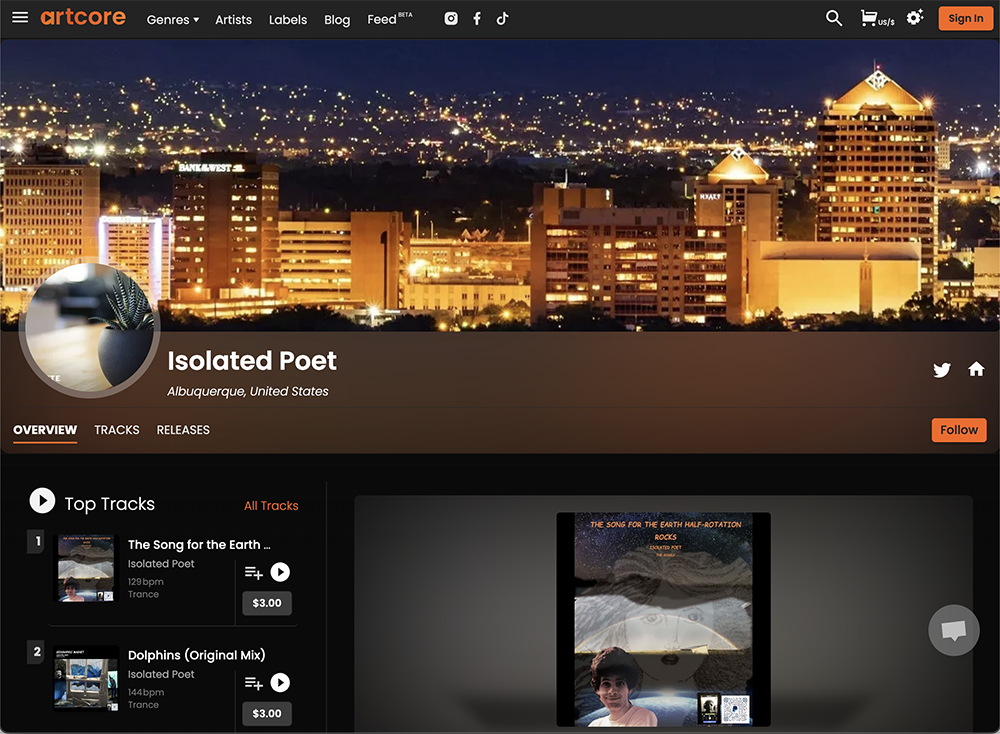Direct Bandcamp Competitors
These platforms all offer artists the ability to transact directly with fans to sell music and merch, plus some mix of discoverability, community, networking, and other related capabilities.
1. Ampwall
Best all-around Bandcamp alternative
Cost: $10/year per 5 hours of uploads
Revenue split: 5% plus PayPal fees
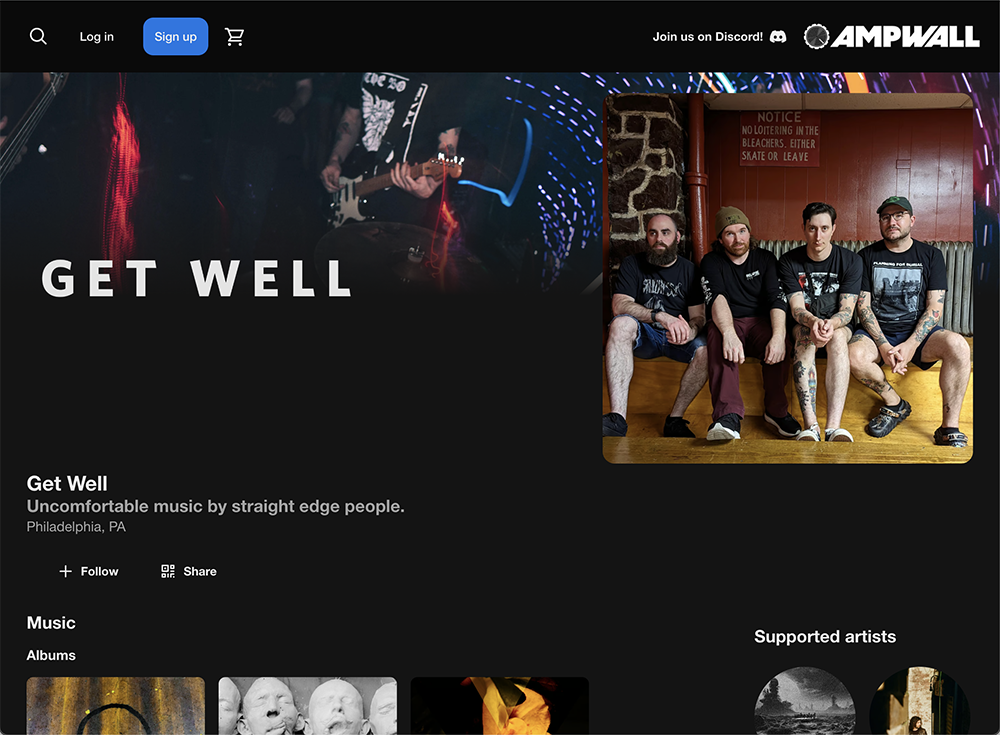
Ampwall details
AI policy: AI content is mostly prohibited. Read more here.
Pros:
- Free to sign up
- Emphasis on artist presence, with splashy customizable landing pages and fan engagement tools either available or on the way
- Batch uploads, schedule-ahead releases, analytics, and more Bandcamp Pro features all included in basic (only) tier
- Fans can choose cover the artists’ revenue share of each transaction
- Works with PayPal, which will be familiar to artists who’ve used Bandcamp
- Built by a team of DIY/independent musicians
- Open discord with direct access to the team working on the project
Cons:
- Project is in open beta, suggesting many changes to come and some rough edges
- Profiles and collections for fans are still mostly under development
- No mobile apps yet
2. Mirlo
Community-built platform for selling music and subscriptions
Cost: Free
Revenue split: 7% plus Stripe fees
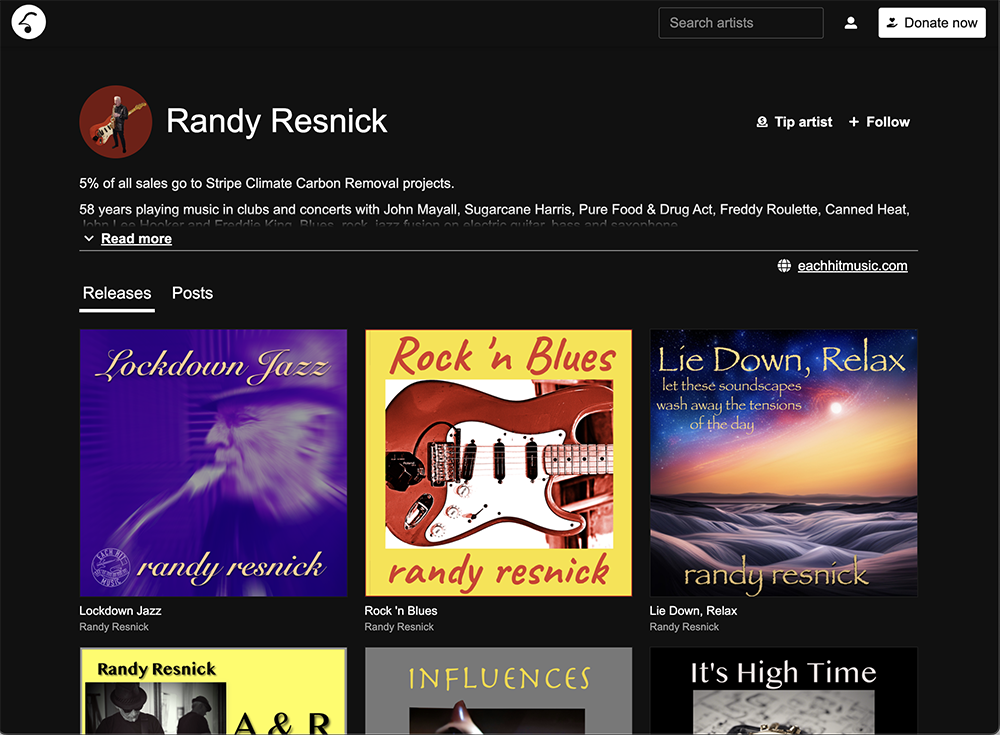
Mirlo details
AI policy: Unknown
Pros:
- Artists can offer subscriptions to fans (think Patreon) and accept tips
- Good color customizability for profiles, plus optional background image upload
- Community-led development effort with an open Discord and GitHub repo
- Long-term intention is to exit to a cooperative model
Cons:
- Requires Stripe, which is a little more intensive to set up than PayPal
- Artist and release pages feel a little underbaked
- No individual track sales
- No mobile apps yet
- Project is Kickstarter- and donation-based, which does not suggest much stability
3. AC55id
Electronic-music-focused platform with fulfillment
Cost: $10/month for artists, $30/month for labels
Revenue split: None, just Stripe fees
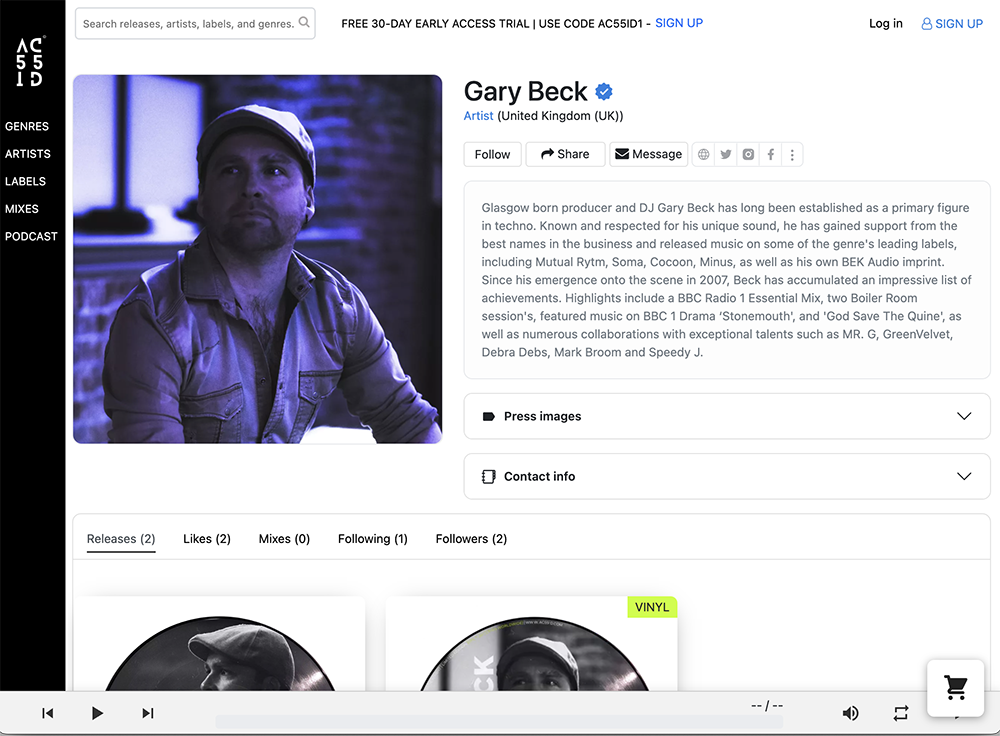
AC55id details
AI policy: Unknown
Pros:
- Includes fulfillment service if you have at least 10 physical items available
- Offers vinyl pressing services, which seems super useful (although we don’t know about the quality)
Cons:
- Almost entirely electronic-music-focused
- Says it includes “blockchain technology,” but doesn’t explain how or what
- It’s unclear who’s involved in the project—CEO’s name only ever given as “James,” although they have a CFO listed on LinkedIn
- Artist profiles are very samey, with little to no custom design options
- Requires Stripe, which is a little more intensive to set up than PayPal
4. Metalabel
Fancy, flexible option for big artists and labels
Cost: Free
Revenue split: 10% plus Stripe fees
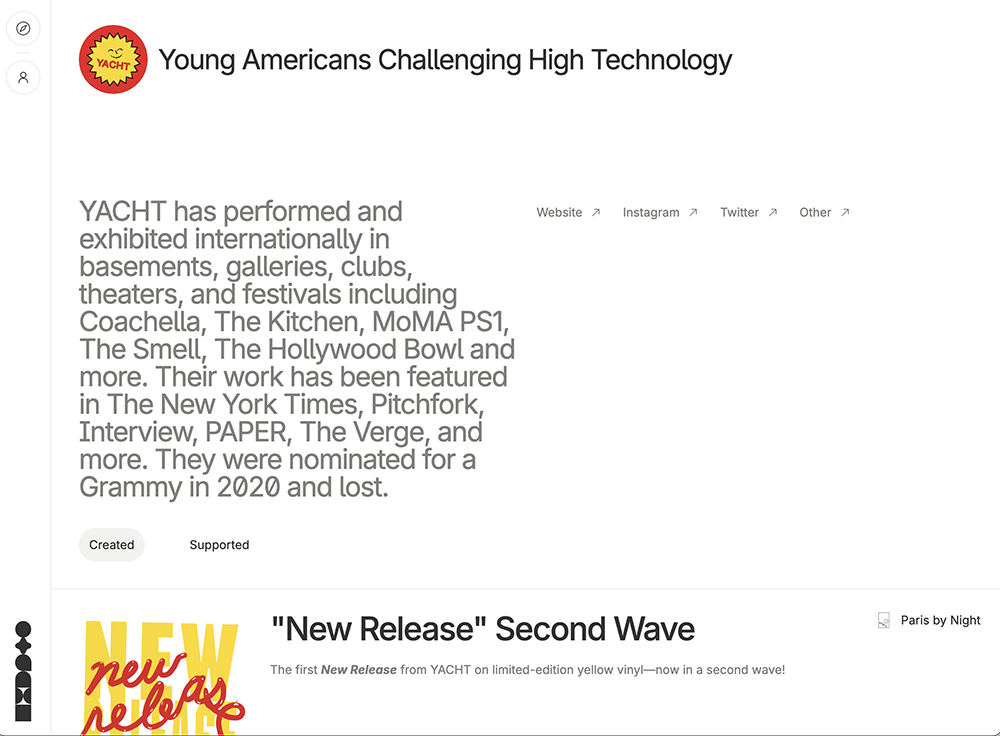
Metalabel details
AI policy: Unknown
Pros:
- Super fancy, like, just gorgeous
- Not just for music—supports all manner of release types and other collaborations
- Run by very high-profile founding team (including Rob Kalin, co-founder of Etsy, and Yancey Strickler, co-founder of Kickstarter)
Cons:
- Accepts artists via application only, and clearly not really intended for DIY/independent artists
- Says there’s no blockchain involved, but have said there likely will be in the past
- We haven’t used this site as an artist so can’t comment further
5. Audius
Blockchain-based attempt to build a decentralized music economy
Cost: Free
Revenue split: none
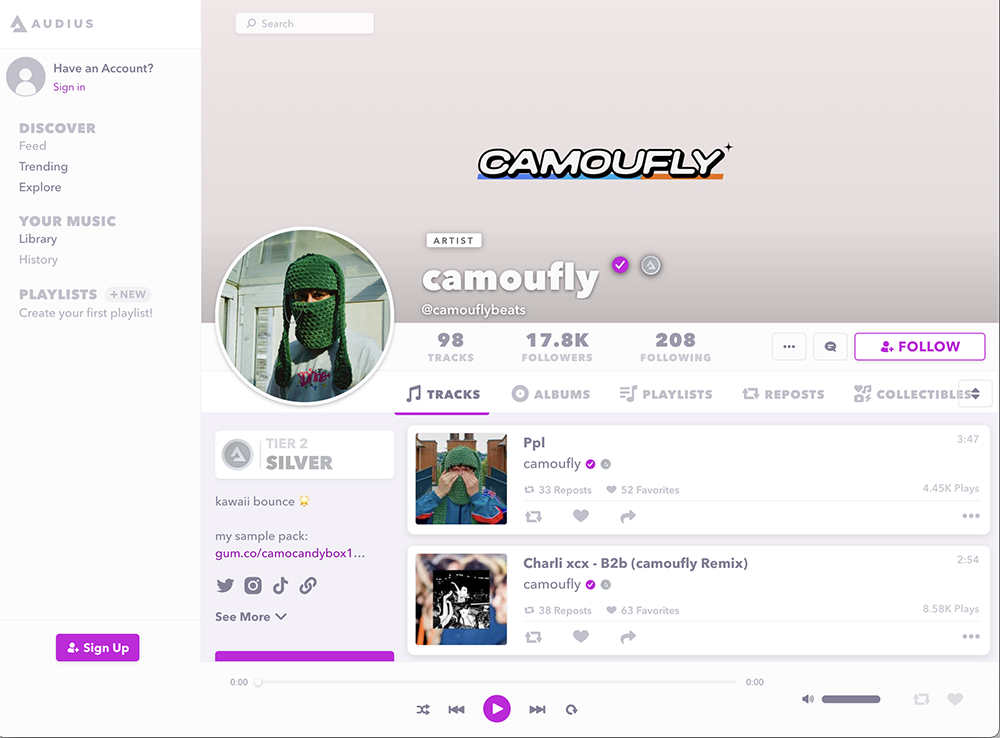
Audius details
AI policy: AI-generated content is mostly permitted. Uploaders have the option of labeling AI-generated work.
Pros:
- Sleek aesthetics! A nicely-built piece of software.
- Emphasis on discoverability and community
- High-profile owners suggest the business has runway while it figures itself out
Cons:
- Blockchain-only. Payments are split between a platform-specific cryptocurrency ($AUDIUS) and USDC, a “stablecoin”—meaning you’ll need to go through multiple steps and services to turn any money you make into real-world money
- Artist pages resemble Soundcloud. They’re more like playlists than profiles
- Business model isn't clear—how does Audius intend to make money?
6. Resonate
High-concept cooperatively-owned music marketplace
Cost: Free
Revenue split: 30% plus PayPal fees
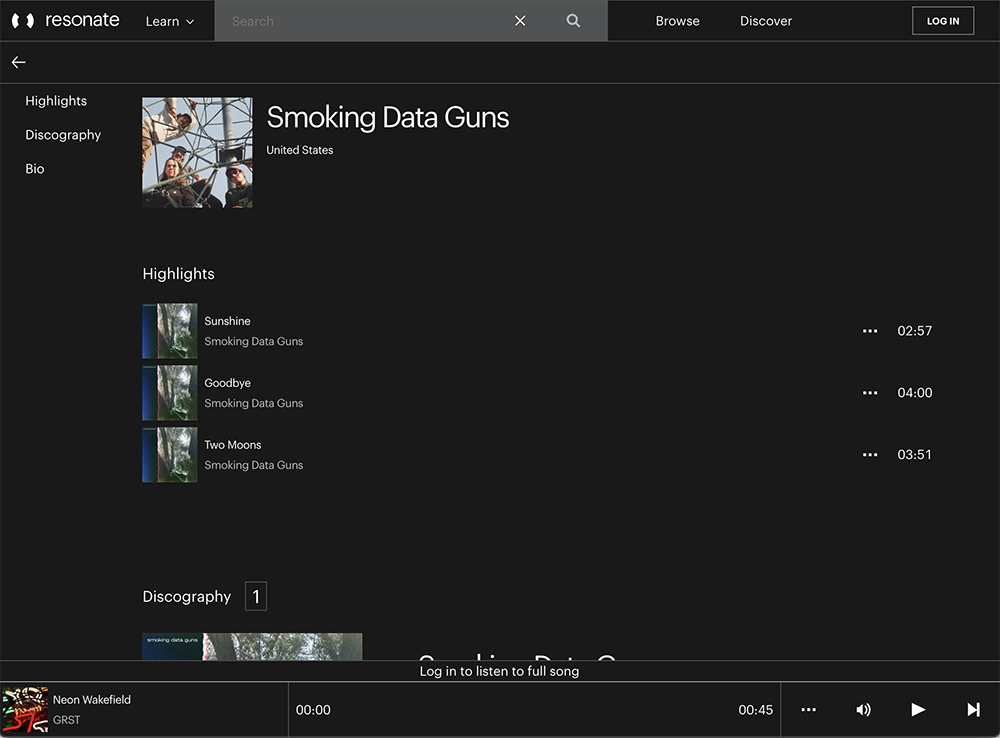
Resonate details
AI policy: Unknown
Pros:
- Forward-thinking cooperative model is a cool idea, if confusing
- Streaming music is (theoretically) also a revenue stream on Resonate
Cons:
- Project seems to be either dead or sleeping, and sign-ups are currently closed
- Streaming music as revenue stream depends on micropayments, on a pay-per-stream-to-own basis, all of which seems a bit of a tall order
- Can’t listen without logging in
Artcore details
AI policy: Unknown
Pros:
- Straightforward, easy-to-use. Somewhere between Soundcloud and Bandcamp
- Discoverability-forward design for all users
Cons:
- No flexibility to artist presentation. All artist and release pages basically look the same as any other, aside from header image
- Really high revenue split, with digital at 20%
